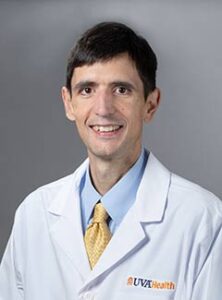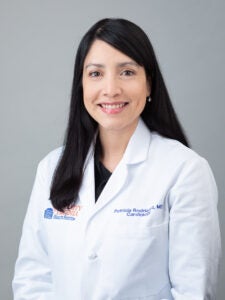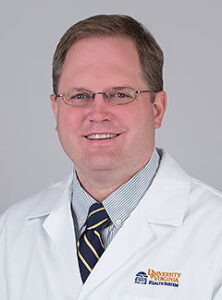Basic Fellowship in Cardiovascular Disease
The Basic Clinical Fellowship in Cardiovascular Disease aims to instruct fellows in evidence-based prevention, diagnosis, and management of patients with various acute and chronic cardiovascular conditions. Our training reflects the standards of the American Board of Internal Medicine, the American College of Cardiology, and the Accreditation Council for Graduate Medical Education (ACGME) program requirements for residency education in cardiovascular disease.
We offer two pathways for completing an ACGME-accredited cardiovascular disease fellowship. The standard three-year clinical training program is geared towards those who want careers as cardiologists in private practice or non-research academics; fellows are encouraged to undertake shortened research projects in their areas of interest. The four-year research/clinical program is designed for fellows who want to pursue a career in academic medicine as physician-scientists.
All fellows participate in a world-class outpatient clinic during their fellowship, where they see a wide range of cardiac pathology. Fellows are matched with a team of attendings, nurses, and administrative support personnel with whom they remain throughout their training.
Cardiovascular disease fellows may continue training at UVA with advanced fellowships in six subspecialties. More information on these programs can be found here. All training programs are conducted at a single hospital location with state-of-the-art facilities and educational opportunities among a collegial group of faculty committed to the teaching mission.
The Division of Cardiovascular Medicine’s basic fellowship program trains physicians to become accomplished subspecialists in cardiovascular disease. Fellows are appointed annually but are expected to remain in the training program for at least three years. The clinical training portion of the program is structured, with required rotations in the first year that include the consultation service, the catheterization laboratory, the noninvasive laboratory, the coronary care unit, and the clinical electrophysiology service.
In the second and third years, additional rotations on clinical services are assigned, with the fellows’ preferences taken into account. Fellows can emphasize a particular discipline, such as catheterization, electrophysiology, or heart failure. Flexible blocks of time can be assigned for investigative work.
Our program offers an array of options, including:
- Four-year training track that consists of an intensive research component
- One-year training program in advanced cardiac catheterization and angioplasty for qualified fellows
- Research training in a related essential science discipline, such as cardiac physiology, molecular biology, cardiac biochemistry, basic cardiac electrophysiology, or cardiovascular pharmacology
-
Victor Soukoulis, MD, PhD
Program Director
-
Patricia Rodriguez Lozano, MD
Associate Program Director
-
Matthew J. Wolf, MD, PhD
Associate Program Director
Application to the Basic Cardiovascular Disease Fellowship Program is a two-step process. Applications are submitted through ERAS. To apply for subspecialty training programs, be sure to complete the second step.
While we preferentially review applications from those who signal our program, we also consider applicants who do not.
- Enter ERAS application information at the beginning of the July application season. We will accept documents from ERAS only.
- On your ERAS application, you must indicate the institutions you wish to receive your application; you must choose the University of Virginia for us to receive your application. We begin reviewing applications in mid-July and conduct interviews in September and October. In recognition of guidelines from medical organizations, all interviews for the current application cycle will be conducted virtually.
The following documents must be submitted to ERAS:
- Common application form, including a personal statement and medical school transcript
- Three letters of recommendation: one from your program director and two others from your current institution, preferably one from a faculty member in the Division of Cardiovascular Medicine
- Wallet-sized color photograph
- USMLE transcripts
- For foreign medical graduates: ECFMG status report
We do accept J1 visas for our three-year clinical fellowships. Applicants for our four-year program (two years of clinical training and two years of focused research) must have a green card or U.S. citizenship, since part of the funding for this program comes from National Institute of Health grants.
Clinical Training
The UVA Clinical Fellowship in Cardiovascular Disease strives to provide fellows with the training needed to provide high-quality care across the spectrum of cardiovascular disease pathology. All rotations occur at a busy academic hospital in Charlottesville, Virginia. A large, diverse patient population is referred to UVA from far-reaching areas of Virginia, West Virginia, and beyond, ensuring that fellows are exposed to some of the country’s most interesting and complex cases. A weekly continuity clinic with dedicated nursing support allows fellows to longitudinally manage common and uncommon cardiovascular conditions while focusing on learning and patient care. On the inpatient side, a night-float system is used on weekday nights to provide overnight coverage for critical cardiology issues and services.
Fellows participate in the following clinical rotations on one to two-week blocks during their training:
Acute Cardiology Service (ACS)
Fellows work in a multi-disciplinary team consisting of an attending cardiologist, house staff, students, social workers, and pharmacists caring for patients on a dedicated hospital floor with a wide range of cardiology issues, including myocardial infarction, heart failure, valve disease, and arrhythmias.
Coronary Care Unit (CCU)
Fellows are part of a team of attending cardiologists, Housestaff, and students managing patients with complex cardiovascular diseases, including acute myocardial infarction, intractable arrhythmias, cardiogenic shock with advanced mechanical support (Impella, IABP, LVAD), complex valve disease, and pulmonary hypertension. Fellows supervise or perform procedures such as right heart catheterizations, arterial lines, and temporary pacemaker placement. Fellows carry the STEMI alert pager and serve as the first point of contact to help in decision-making for all inpatient and transfer STEMI patients.
Cardiology Consult Service
Fellows direct a team composed of an attending cardiologist, Housestaff from multiple specialties, and students to help guide other services in managing inpatient cardiology problems.
Electrophysiology Service
Fellows work closely with an attending electrophysiologist in providing consultation for common arrhythmia-related issues. In addition to learning the advanced principles of device interrogation, they also gain exposure and experience with procedures such as pacemaker/ICD placement and complex ablation.
Advanced Heart Failure Inpatient Service
Fellows are part of a comprehensive team composed of an advanced heart failure cardiologist, advanced providers, Housestaff, pharmacist, and students that manage and consult on patients with a wide range of advanced heart failure pathology. Given UVA’s role as a heart transplant center, fellows learn to manage ventricular assist devices and their complications and understand pre- and post-transplant decision-making.
Cardiac Catheterization Laboratory
Fellows work closely with attending interventional cardiologists to gain robust experience in coronary angiography (and its interpretation), right heart catheterization, invasive hemodynamic assessment, LV-grams, mechanical circulatory support, and pericardiocentesis, in addition to exposure to peripheral angiography and structural heart disease cases. With one fellow paired with one attending for each case, the fellows can gain gradual independence to perform these procedures well before graduation.
Transthoracic and Transesophageal Echocardiography
Fellows begin their training by being paired with a teaching sonographer to begin learning the basics of transthoracic image acquisition. After satisfying image acquisition skills, they are slowly transitioned to a primary interpreter/reader role. Dedicated twice-daily reading sessions with echocardiography attendings serve to build upon this knowledge. Fellows perform transesophageal echocardiograms in a variety of settings, including outpatient and inpatient cases as well as the cardiac surgery operating suite, taking advantage of the diverse valvular pathology that is seen at UVA due to its robust referral network for advanced valve disease and participation in numerous cutting-edge percutaneous valve trials. Most of our fellows elect to sit on the echocardiography boards.
Nuclear Cardiology and Stress Testing
Fellows work with the stress lab staff and a nuclear cardiologist to supervise stress testing, acquire and process images, and interpret studies. The stress lab exposes various modalities, including echocardiography, SPECT, PET, and technetium pyrophosphate.
Additional elective time is provided that can be used, among other things, for:
- Research
- Vascular medicine (UVA has a dedicated vascular medicine program and fellowship)
- Congenital heart disease (including sports cardiology for university teams)
- Specialty outpatient clinics (HCM, vascular, pulmonary hypertension, advanced valve, etc.)
- CT/MRI/Advanced Cardiac Imaging modalities
- Additional training experiences tailored to each fellow’s career interests
Check out advanced fellowship training opportunities.
Cardiovascular Disease Program
Cheryl Etelvari, Program Administrator
Phone: 434.924.9001
Email: cle4n@uvahealth.org



